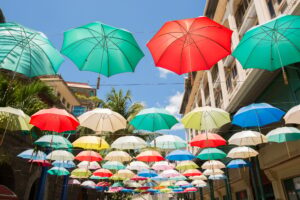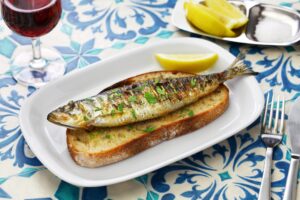Portuguese Festivals Guide | Cultural Calendar for Visitors
Portugal’s Rich Festival Culture
Portuguese festivals blend Catholic traditions with local customs, creating celebrations that are both deeply religious and joyously secular. Coming from Cyprus, you’ll recognize familiar elements – Orthodox and Catholic traditions share many saints and celebrations – but Portuguese festivals have unique characteristics shaped by Atlantic culture, colonial history, and regional traditions.
Portugal celebrates throughout the year with everything from intimate village feast days to massive international festivals. These celebrations offer visitors authentic insights into Portuguese culture, community spirit, and the country’s ability to maintain tradition while embracing modernity.

Understanding Portuguese festival culture helps visitors time their trips for maximum cultural immersion and provides context for understanding Portuguese society, values, and community relationships.
Annual Festival Calendar

Spring Celebrations (March – May)
Easter Week (Semana Santa) – March/April
Portuguese Easter rivals Cyprus’s Orthodox celebrations in importance and elaborateness, though Catholic traditions create different customs and timing.
Good Friday Processions: Cities throughout Portugal hold solemn processions recreating Christ’s passion. Braga’s procession is especially famous, featuring hooded penitents, religious floats, and thousands of participants creating medieval atmosphere.
Easter Sunday Celebrations: Families gather for elaborate meals featuring roast lamb, traditional breads, and Easter sweets. Churches hold special masses with beautiful decorations and music.
Regional Variations: Northern Portugal maintains more traditional celebrations, while southern regions blend religious observance with spring festivals and local customs.
Visitor Experience: Easter week provides profound cultural experiences, though accommodations book early and some businesses close. Plan ahead for this important religious period.
Festa das Cruzes (Festival of Crosses) – Barcelos – May
This ancient festival combines religious devotion with spectacular folk celebrations, creating one of Portugal’s most colorful events.
Historical Background: Commemorates a medieval miracle involving a rooster, now symbol of Portuguese good luck and featured on countless souvenirs.
Festival Highlights:
- Elaborate carpet decorations made from flower petals and colored sawdust
- Traditional folk dancing and music performances
- Regional craft exhibitions and local food specialties
- Religious processions and blessing ceremonies
Cultural Significance: Demonstrates how Portuguese communities blend sacred and secular celebration, maintaining centuries-old traditions while welcoming visitors.
Summer Festivals (June – August)

Santos Populares (Popular Saints) – June
June brings Portugal’s most beloved celebrations honoring Saints Anthony, John, and Peter. These festivals transform Portuguese cities into outdoor parties combining religious devotion with street celebrations.
Santo António (Saint Anthony) – June 13 Lisbon’s patron saint celebration fills the city with street parties, grilled sardines, traditional music, and romantic traditions.
Festival Activities:
- Grilled sardines served on bread with roasted peppers
- Traditional songs (marchas populares) performed by neighborhood groups
- Street decorations with colorful banners and lights
- Marriage proposals (Saint Anthony is patron saint of lovers)
São João (Saint John) – June 23-24 Porto’s most important festival creates citywide celebration with unique local customs.
Porto Traditions:
- Plastic hammers for playfully hitting people on the head
- Leeks and garlic worn as decorations and good luck charms
- Cascata River jumping for brave participants
- Midnight fireworks and all-night street parties
São Pedro (Saint Peter) – June 29 Fishing communities especially celebrate the patron saint of fishermen with boat processions, seafood feasts, and maritime traditions.
Cultural Context for Cypriots: These celebrations resemble Greek Orthodox saint days but with distinctly Portuguese flavors, Atlantic influences, and community involvement that differs from Cyprus’s more family-centered religious celebrations.
Festival Nacional de Gastronomia – Santarém – October
While technically autumn, this festival represents Portuguese food culture at its finest, showcasing regional specialties from throughout the country.
Culinary Focus:
- Regional specialties from all Portuguese provinces
- Wine tastings featuring local vintages
- Cooking demonstrations by renowned Portuguese chefs
- Traditional products including cheeses, sausages, and preserved foods
Educational Value: Perfect introduction to Portuguese cuisine diversity, allowing visitors to sample regional specialties in one location while learning about food traditions and preparation methods.
Autumn Celebrations (September – November)
Festa da Vindima (Wine Harvest Festival) – September/October
Portuguese wine regions celebrate harvest season with festivals combining work, tradition, and celebration in ways that echo Cyprus wine traditions but with distinctly Portuguese character.
Douro Valley Harvest: The most spectacular wine harvest celebration takes place among terraced vineyards along the Douro River.
Festival Elements:
- Grape stomping competitions and demonstrations
- Traditional music and folk dancing
- Regional wine tastings featuring new and aged vintages
- Harvest meals with traditional foods paired with local wines
Participation Opportunities: Many quintas (wine estates) welcome visitors to participate in harvest activities, providing authentic cultural experiences and understanding of Portuguese wine-making traditions.
Regional Variations: Different wine regions celebrate at different times based on grape ripening, allowing visitors to experience multiple harvest festivals throughout autumn.
Festa de São Martinho – November 11
Portugal’s autumn celebration combines religious observance with seasonal traditions, featuring new wine, roasted chestnuts, and harvest thanksgiving.
Traditional Elements:
- Magusto (chestnut roasting) ceremonies
- Vinho novo (new wine) tasting and blessing
- Traditional songs about autumn and harvest
- Regional foods celebrating seasonal abundance
Weather Folklore: São Martinho traditionally brings “summer of São Martinho” – several days of warm weather in November, celebrated as the saint’s gift to humanity.
Winter Celebrations (December – February)
Christmas Season (Natal) – December
Portuguese Christmas combines Catholic traditions with local customs, creating celebrations that are both familiar and unique for visitors from other Christian countries.
Christmas Markets: Portuguese cities host Christmas markets featuring traditional crafts, seasonal foods, and holiday decorations with distinctly Portuguese character.
Traditional Foods:
- Bacalhau (cod) prepared in numerous ways for Christmas Eve dinner
- Bolo Rei (King Cake) with fruits, nuts, and hidden surprises
- Rabanadas (Portuguese French toast) and other seasonal sweets
- Regional specialties varying by Portuguese province
Religious Observances: Midnight Mass (Missa do Galo) on Christmas Eve draws large congregations, while nativity scenes (presépios) compete for most elaborate displays.
Family Traditions: Portuguese families gather for elaborate meals, gift exchanges, and religious observances that emphasize family connections and traditional values.
New Year’s Eve (Passagem de Ano) – December 31
Portuguese New Year celebrations combine public festivities with family traditions, offering various ways to welcome the new year.
Lisbon Celebrations: Major public celebration in Terreiro do Paço with live music, fireworks, and thousands of celebrants creating festive atmosphere.
Traditional Customs:
- Twelve grapes eaten at midnight for good luck
- New clothes worn to ensure prosperity
- First-footing traditions in some regions
- Family dinners before public celebrations
Regional Variations: Different Portuguese regions maintain unique New Year traditions, from beach celebrations in the Algarve to mountain festivities in northern regions.
Carnaval – February/March
Portuguese Carnaval varies significantly by region, from elaborate parades to traditional folk celebrations, offering diverse cultural experiences.
Torres Vedras Carnaval: Most famous Portuguese Carnaval features satirical floats, political humor, and elaborate costumes in multi-day celebration.
Regional Celebrations:
- Madeira: Sophisticated celebrations with international participation
- Northern regions: Traditional folk-based celebrations
- Coastal areas: Maritime-themed festivities
- Rural areas: Community-centered celebrations with local traditions
Regional Festival Specialties
Northern Portugal Festivals
Romaria de São Bento da Porta Aberta – Gerês – August
One of Portugal’s largest religious pilgrimages combines spiritual devotion with spectacular mountain scenery and traditional customs.
Pilgrimage Elements:
- Mountain hiking to remote sanctuary
- Religious processions through natural landscapes
- Traditional camping in primitive conditions
- Community sharing of food and resources
Cultural Significance: Demonstrates Portuguese blend of Catholic faith with nature worship and community solidarity in challenging mountain environment.
Festa de São João da Madeira – June
Industrial city’s celebration showcases how modern Portuguese communities maintain traditional festivities while embracing contemporary culture.
Modern Adaptations:
- Contemporary music alongside traditional performances
- Local business participation in festival organization
- International visitors welcomed into local traditions
- Environmental consciousness in festival planning
Central Portugal Celebrations
Festa dos Tabuleiros – Tomar – July (every 4 years)
One of Portugal’s most spectacular festivals features elaborate bread and flower crowns carried by young women in procession through historic city.
Unique Elements:
- 30-kilogram crowns made of bread and flowers
- Religious procession through UNESCO World Heritage city
- Community preparation involving entire population
- International recognition as unique cultural event
Historical Context: Combines Templar religious traditions with Portuguese folk culture, creating celebration found nowhere else in the world.
Planning Considerations: Festival occurs only every four years (next in 2027), requiring advance planning but offering once-in-a-lifetime cultural experience.
Southern Portugal Festivals
Festival Med – Loulé – June/July
Contemporary world music festival in Algarve showcases Portugal’s international cultural connections while maintaining regional identity.
Musical Diversity:
- World music from Portuguese-speaking countries
- Traditional Portuguese fado and folk music
- Contemporary fusion combining traditional and modern styles
- International artists representing diverse cultural traditions
Cultural Exchange: Festival demonstrates modern Portugal’s global connections while maintaining strong cultural roots and regional identity.
Feira Medieval de Silves – August
Historic recreation brings medieval Portugal to life through authentic demonstrations, performances, and immersive cultural experiences.
Medieval Activities:
- Craft demonstrations showing traditional techniques
- Historical reenactments of medieval life
- Traditional foods prepared using historic methods
- Period costumes and authentic medieval atmosphere
Educational Value: Provides insights into Portuguese history, cultural development, and traditional skills while offering entertaining family-friendly activities.
Island Festivals
Festa do Espírito Santo – Azores – May/June
Azorean celebration unique to Portuguese islands combines religious devotion with community solidarity and elaborate feast traditions.
Unique Traditions:
- Crown ceremonies passing religious crown between families
- Community feasts feeding entire neighborhoods
- Traditional bread and special foods prepared for celebration
- Mutual aid demonstrating island community solidarity
Cultural Preservation: Azorean communities worldwide maintain these traditions, creating global network of Portuguese cultural preservation.
Festa da Flor – Madeira – April/May
Madeira’s flower festival showcases the island’s unique climate and botanical diversity while celebrating spring arrival.
Botanical Celebrations:
- Flower carpets decorating city streets
- Garden competitions featuring elaborate displays
- Botanical exhibitions showcasing Madeira’s unique flora
- Cultural performances in garden settings
International Appeal: Festival attracts visitors worldwide while maintaining authentic Madeiran traditions and showcasing island’s natural beauty.
Festival Participation Guidelines
Cultural Etiquette
Religious Respect: Portuguese festivals often combine religious and secular elements. Show respect during religious ceremonies while enjoying secular celebrations.
Community Integration: Portuguese welcome visitor participation but appreciate when guests show genuine interest in traditions rather than treating festivals as mere entertainment.
Photography Considerations: Ask permission before photographing people, especially during religious ceremonies. Respect sacred spaces and solemn moments.
Language Efforts: Learning basic Portuguese greetings and expressions enhances festival experiences and demonstrates respect for local culture.
Practical Preparation
Accommodation Booking: Major festivals require advance accommodation reservations, sometimes months ahead. Smaller towns may have limited options during celebrations.
Transportation Planning: Festivals can disrupt normal transportation schedules. Plan arrival and departure around celebration schedules and book transportation early.
Weather Preparation: Portuguese weather can change quickly, especially during spring and autumn festivals. Pack appropriate clothing for various conditions.
Cultural Research: Understanding festival history and significance enhances appreciation and participation. Research traditions before attending.
Food and Dining
Festival Foods: Each celebration features specific traditional foods. Try local specialties but be prepared for different flavors and preparation methods.
Dining Etiquette: Portuguese festival dining often involves sharing and community participation. Follow local customs for communal eating and drinking.
Special Dietary Needs: Communicate dietary restrictions clearly, as festival foods often follow traditional recipes that may not accommodate modern dietary preferences.
Comparing Portuguese and Cyprus Festivals
Similarities
Religious Foundation: Both cultures maintain strong religious festival traditions, though Catholic vs Orthodox differences create distinct celebrations.
Community Focus: Portuguese and Cypriot festivals emphasize community participation, family gatherings, and social cohesion through shared celebration.
Seasonal Rhythms: Both cultures celebrate seasonal changes, harvest times, and religious calendar events that mark annual rhythms and community life.
Food Integration: Festivals in both cultures feature special foods, family recipes, and communal dining that reinforce cultural identity and social bonds.
Differences
Scale and Organization: Portuguese festivals often involve larger communities and more elaborate organization than Cyprus celebrations due to larger population and resources.
International Elements: Portuguese festivals frequently incorporate international influences reflecting colonial history and global connections that Cyprus lacks.
Tourism Integration: Portuguese festivals are more adapted to international tourism while maintaining authenticity, creating different balance than Cyprus celebrations.
Regional Diversity: Portugal’s larger size creates more regional festival variation than Cyprus’s more unified island celebration culture.
Festival Photography and Documentation
Cultural Sensitivity
Sacred vs Secular: Distinguish between religious ceremonies requiring respectful behavior and secular celebrations allowing more relaxed participation and photography.
Permission Protocols: Always ask permission before photographing individuals, especially children, elderly people, and participants in religious ceremonies.
Cultural Representation: Photograph festivals in ways that show respect for traditions and avoid stereotypical or superficial representations of Portuguese culture.
Technical Considerations
Lighting Challenges: Many festivals occur during evening hours or in challenging lighting conditions. Prepare appropriate camera equipment and techniques.
Crowd Management: Popular festivals involve large crowds requiring careful positioning and equipment protection while maintaining respectful behavior.
Event Timing: Research festival schedules to capture key moments while allowing full participation in cultural experiences rather than just documentation.
Portuguese festivals offer visitors authentic insights into the country’s culture, values, and community spirit while providing entertaining and meaningful experiences. For Cypriots familiar with Mediterranean festival traditions, Portuguese celebrations offer both familiar elements and exciting differences that expand cultural understanding.
The key to festival appreciation is approaching celebrations with genuine curiosity, cultural respect, and willingness to participate rather than merely observe, creating memorable experiences that enhance understanding of Portuguese society and traditions.
Read More:
Sources:
